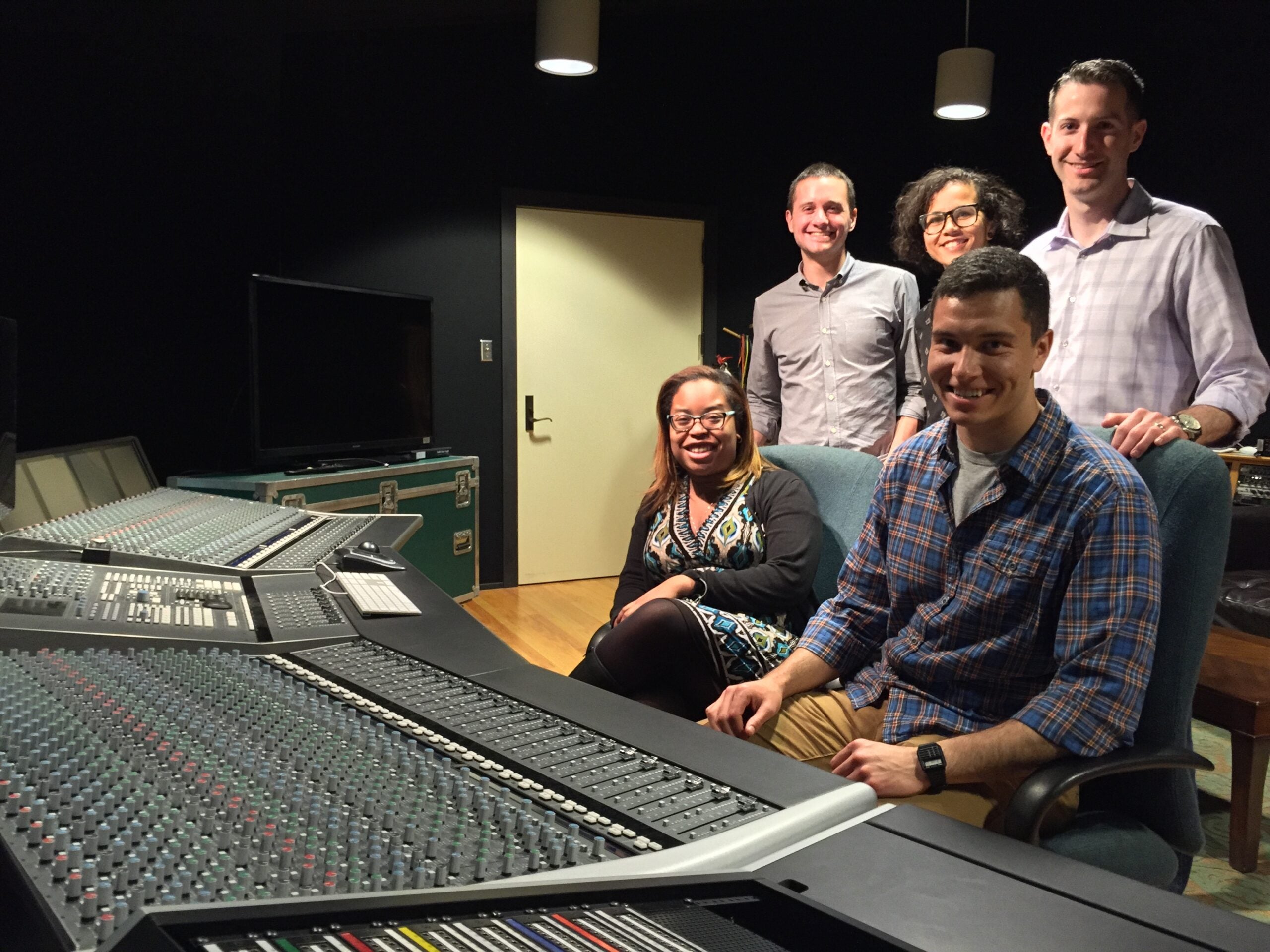
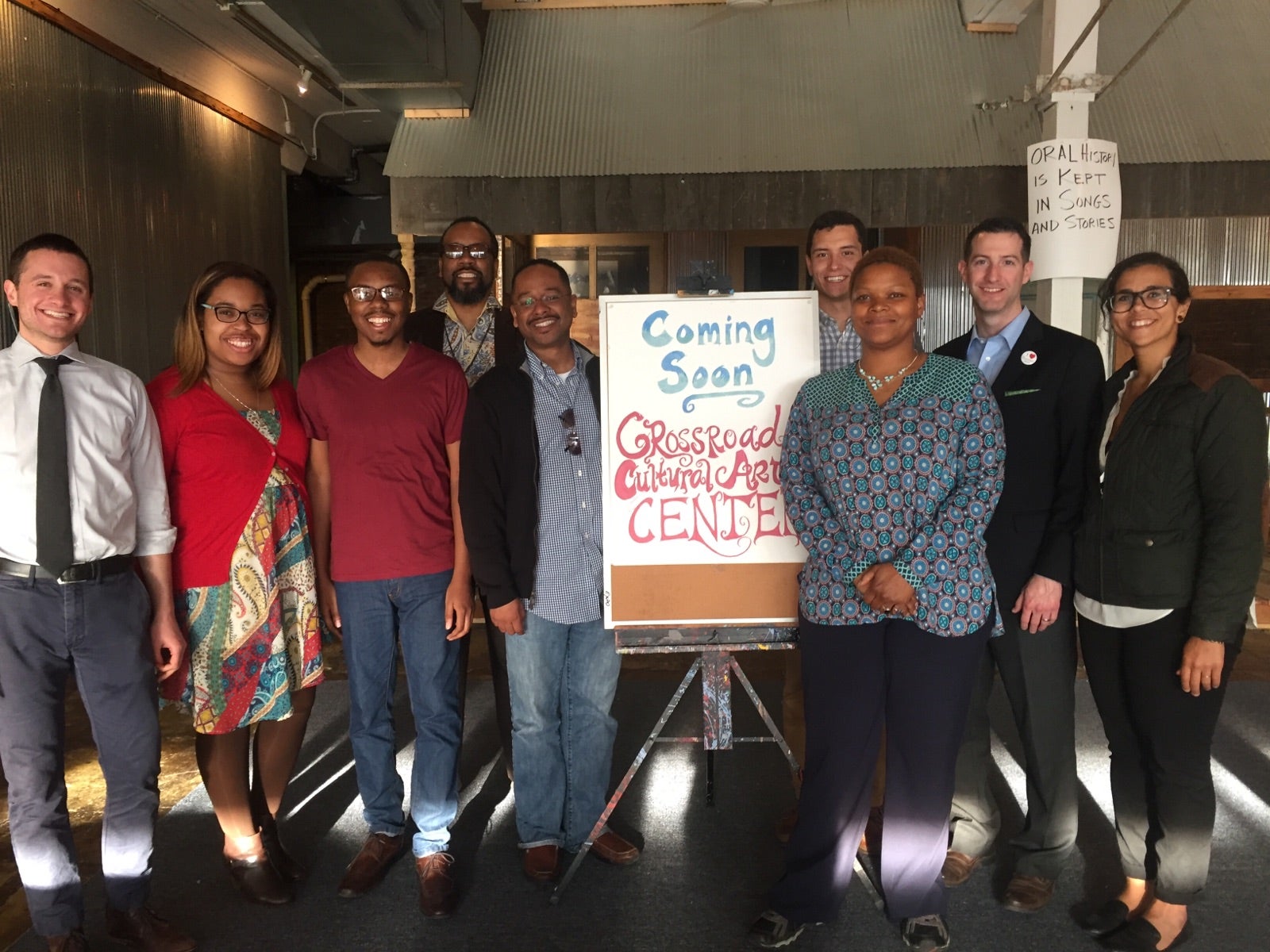
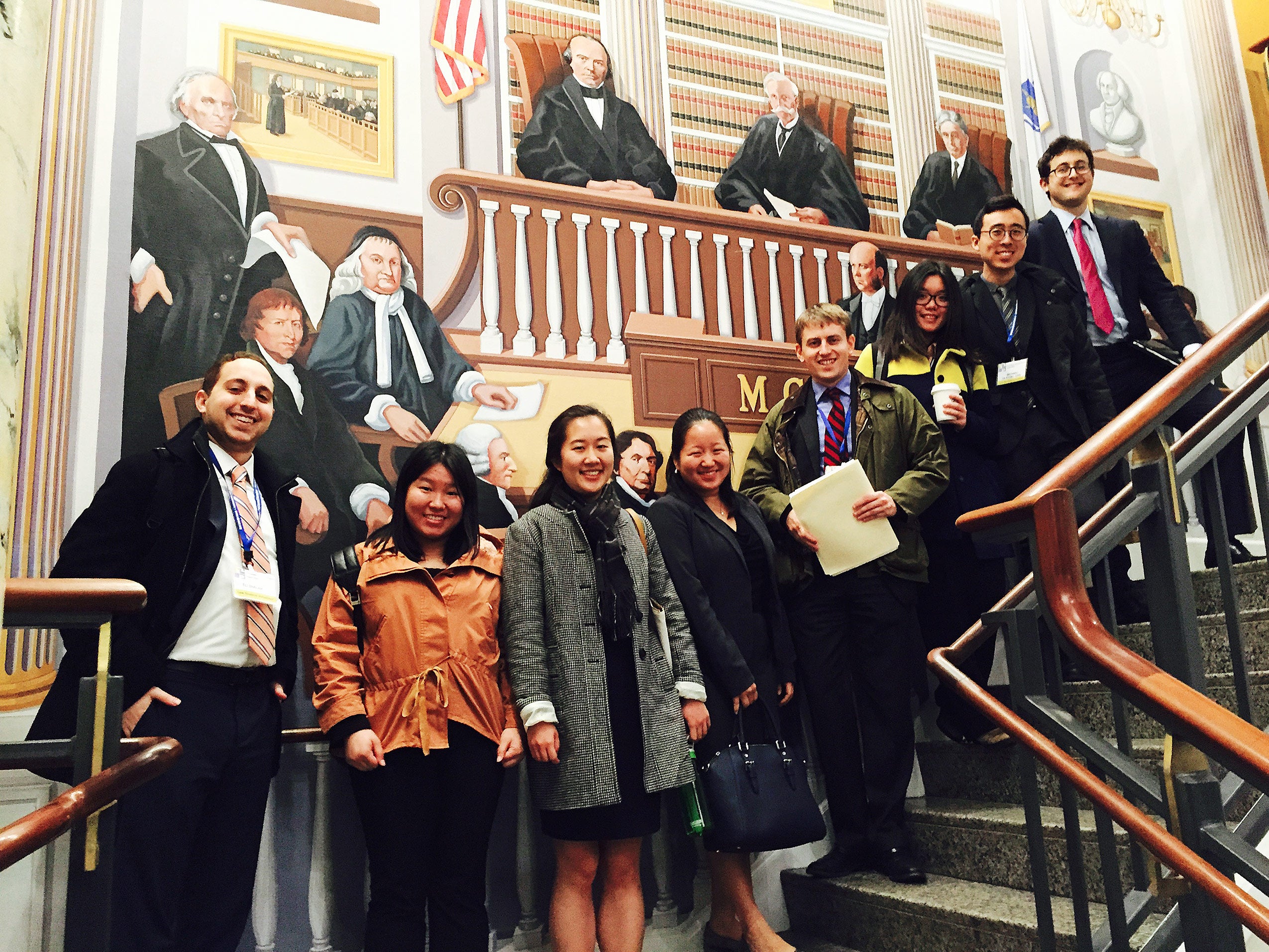
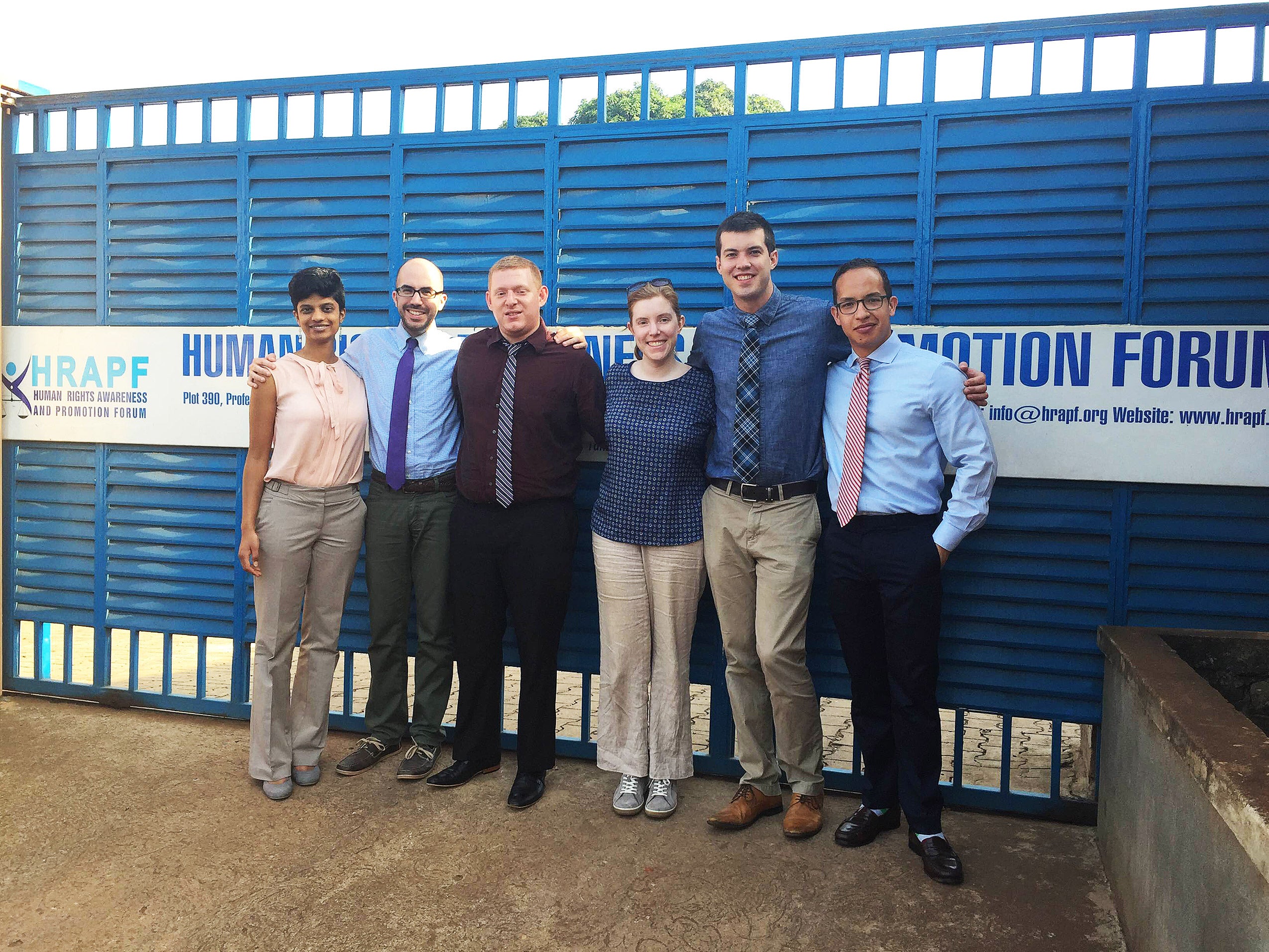
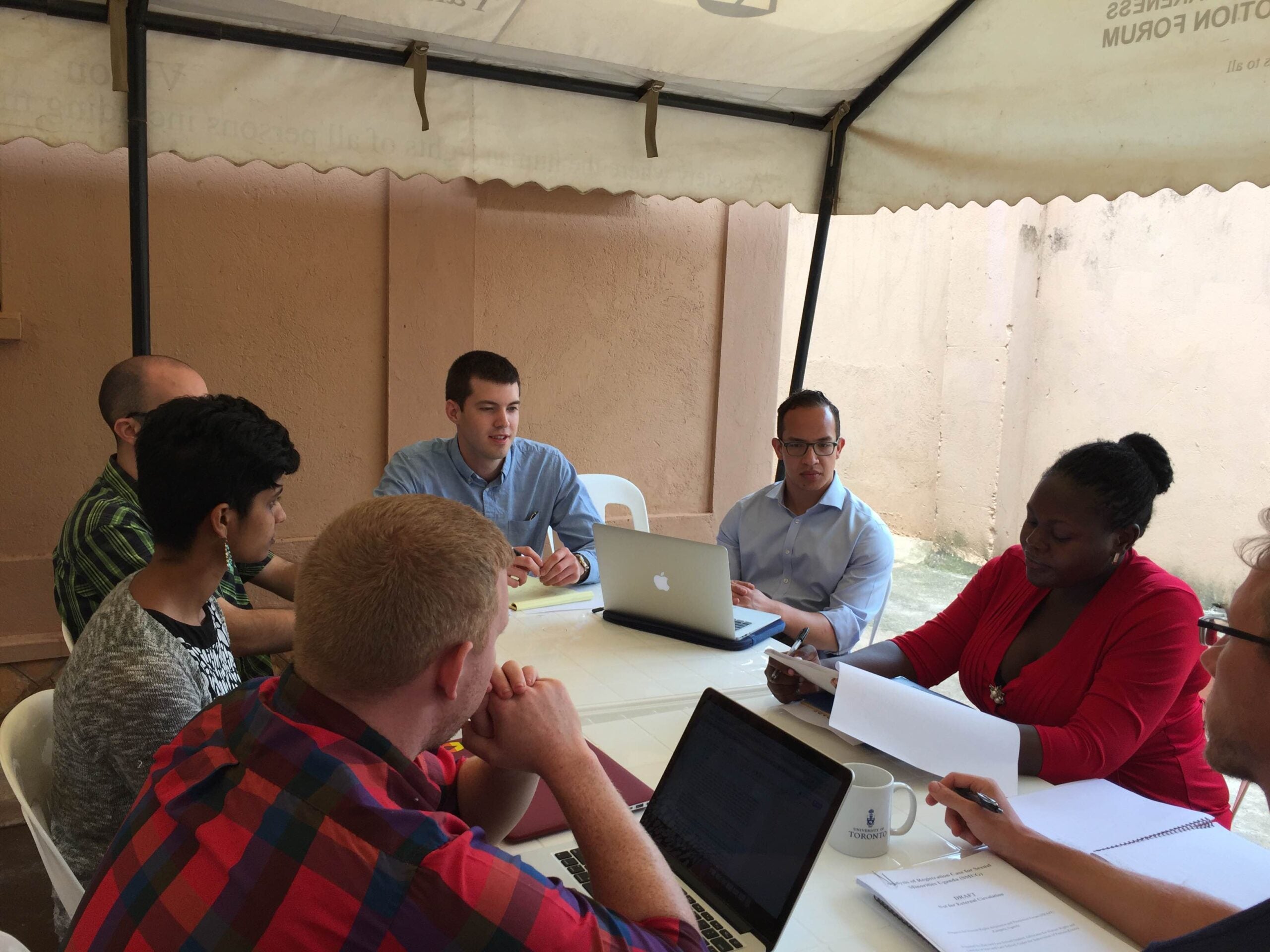
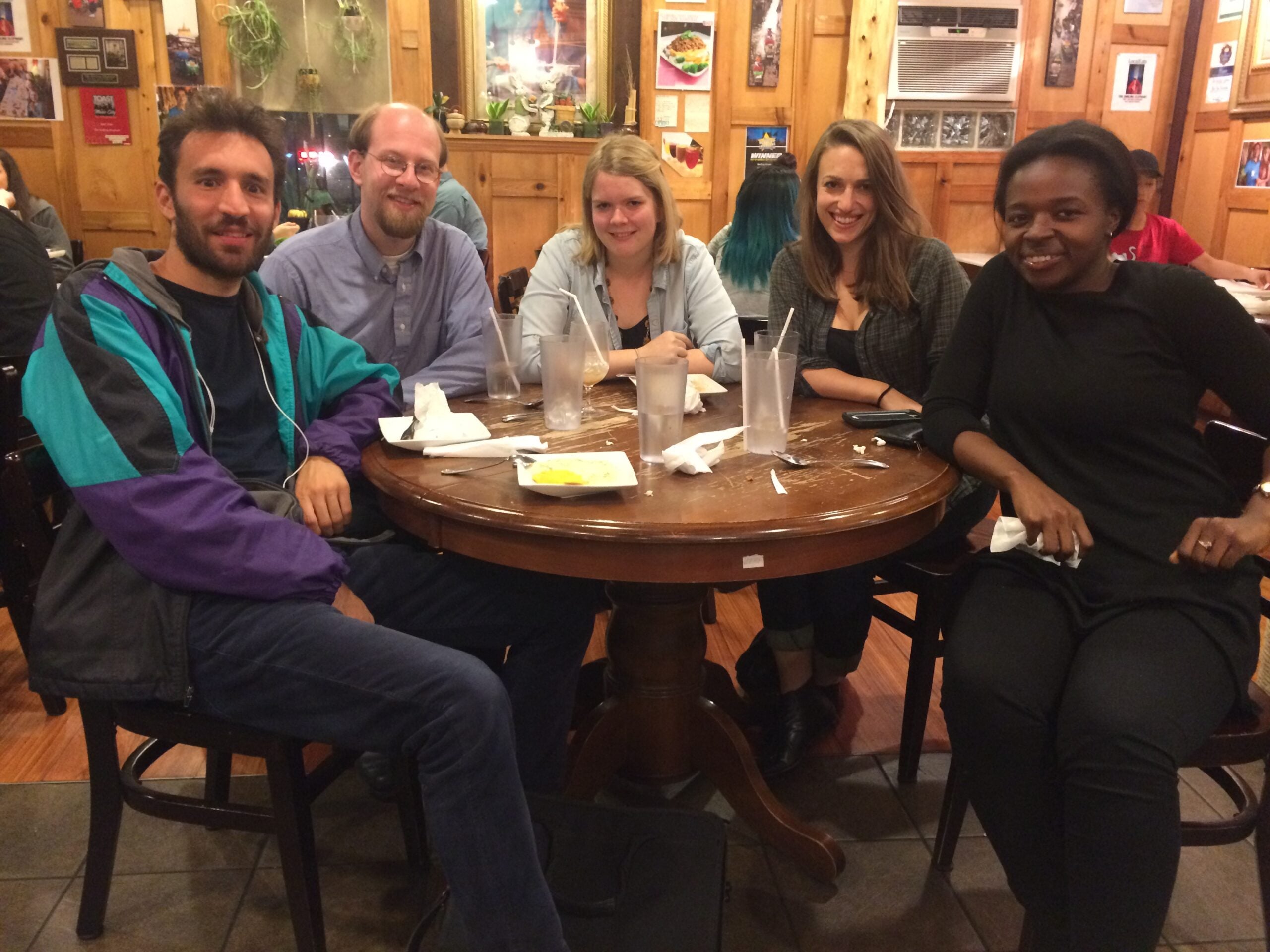
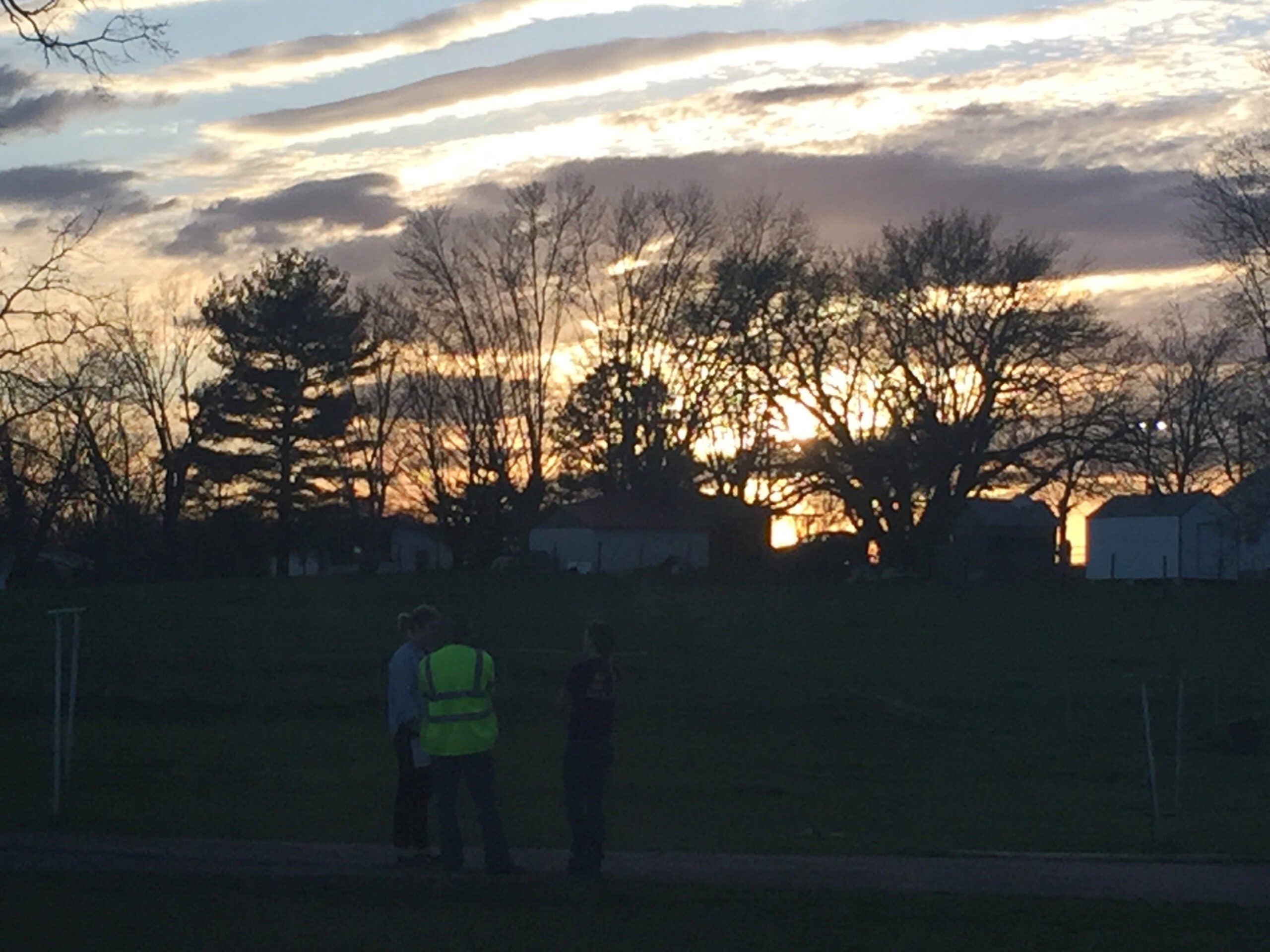
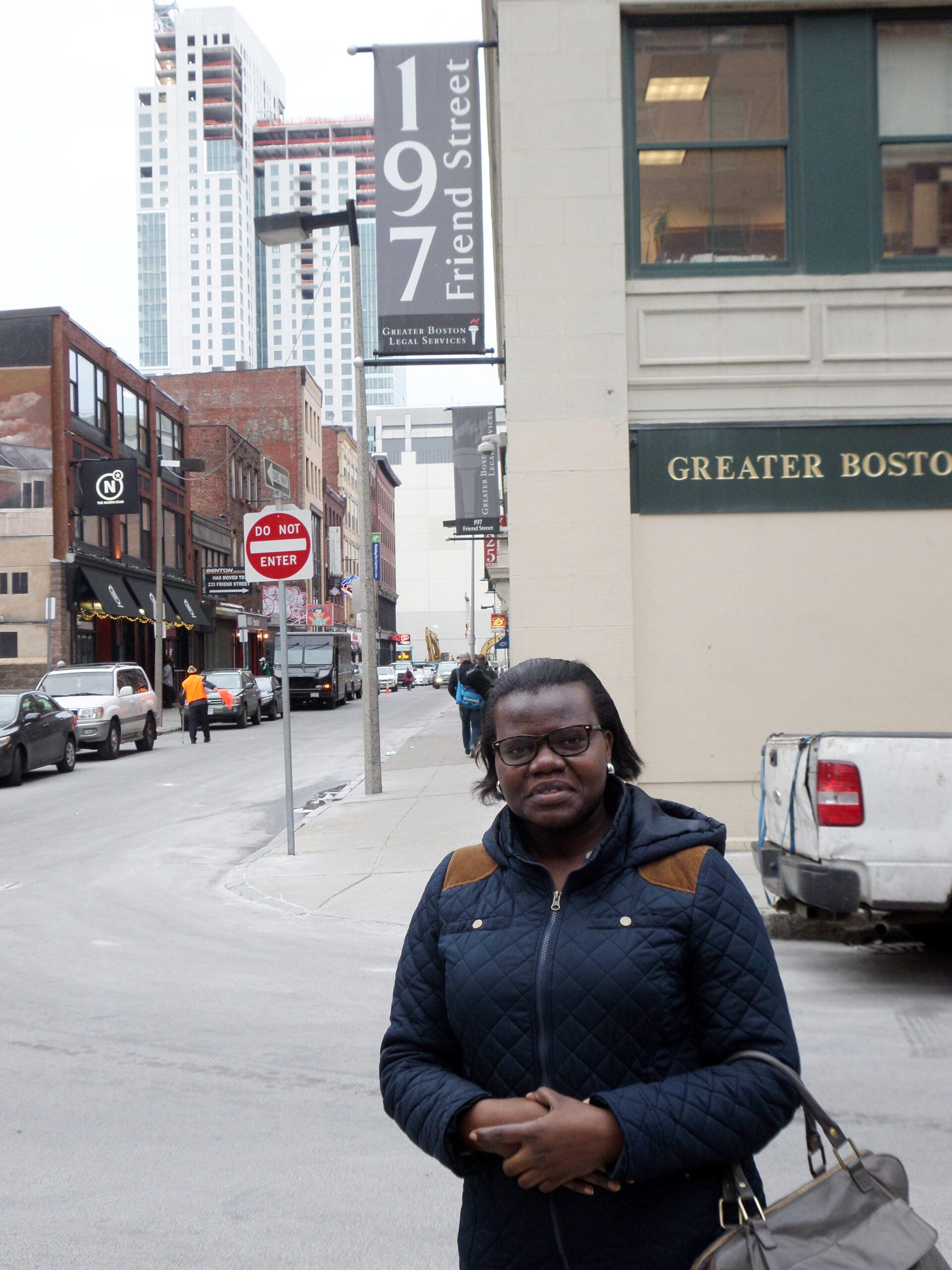
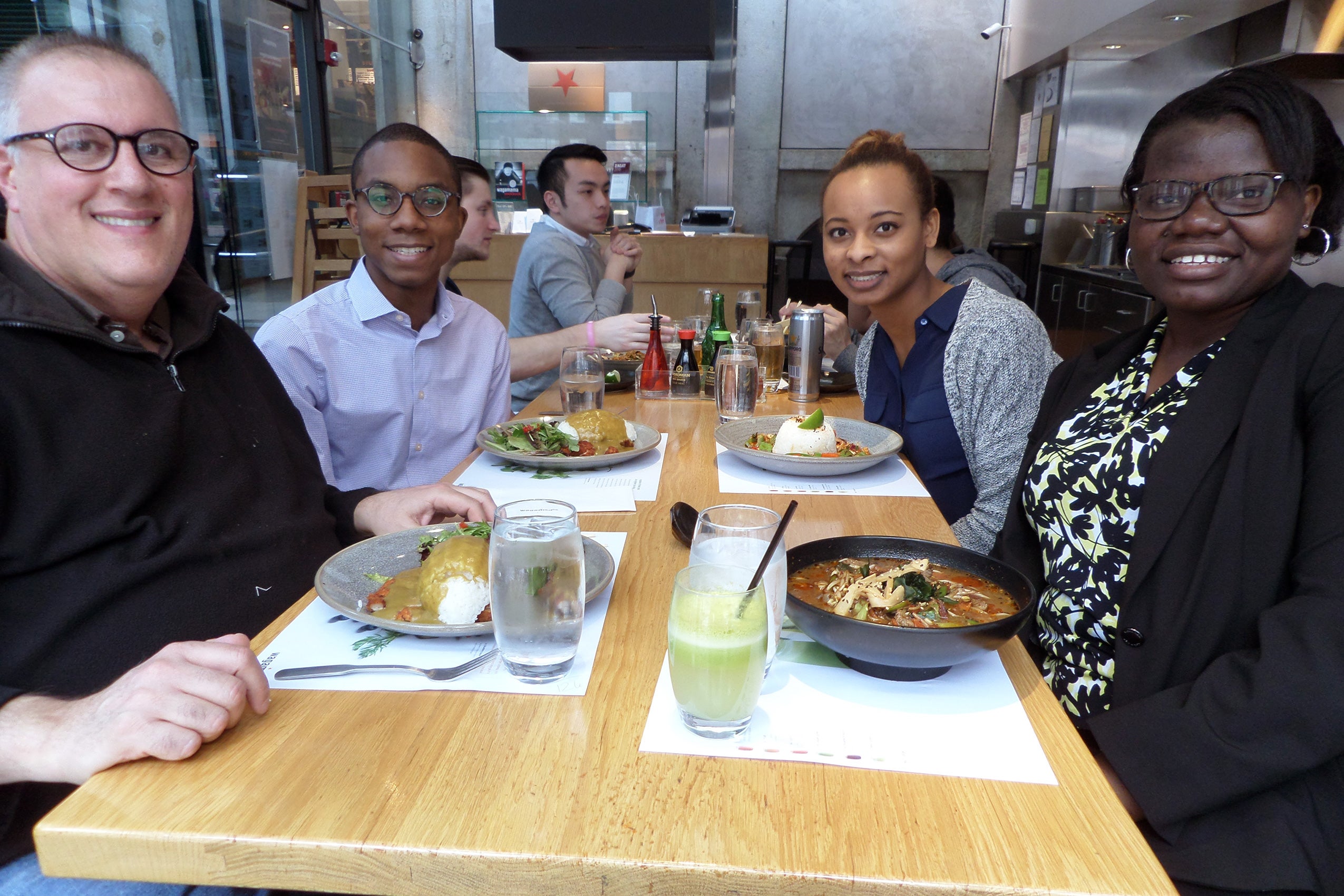
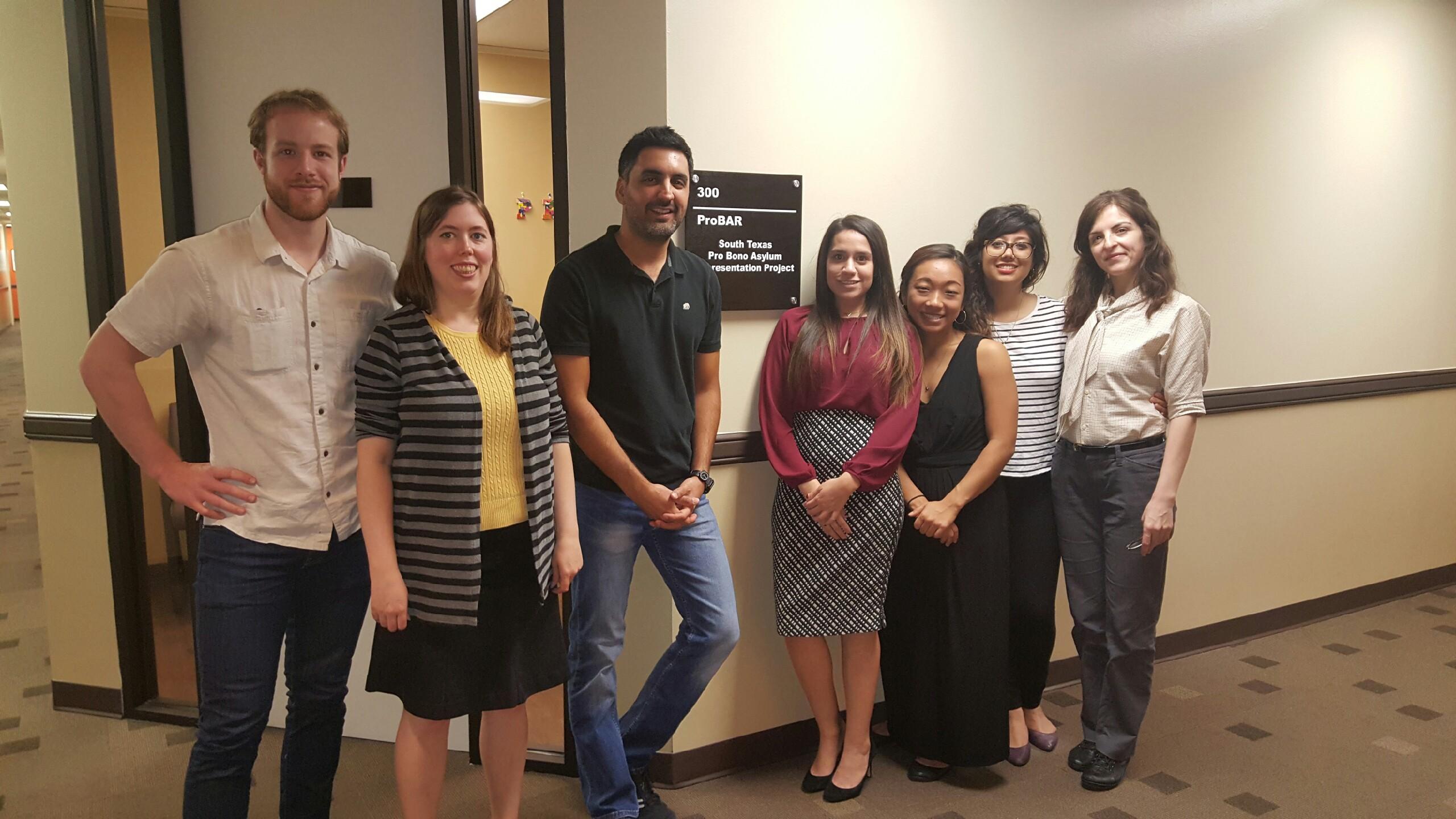
Each year, teams of Harvard Law School students are given the opportunity to spend their Spring Break experiencing legal services work with clinics and legal organizations in the Boston area, or working on projects around the country and abroad. These trips and placements are part of an “alternative spring break” program developed and sponsored by the Office of Clinical and Pro Bono programs at Harvard Law School.
This year, during the week of March 11-18, students worked locally at the Volunteer Lawyers Project of the Boston Bar Association; at Greater Boston Legal Services (GBLS)/Legal Advocacy and Resource Center (LARC); and at the law school’s own Legal Services Center (LSC)/Veterans Legal Clinic.
Project teams traveled within the U.S. and abroad, working with Equal Justice Under Law in Murfressboro, TN, following up on the work of last year’s pro bono trip to Tennessee by contributing to a civil rights lawsuit, Rodriguez v. PCC, that resulted from that work; assisting with litigation to advance human rights protections for lesbian, gay, bisexual, transgender, and intersex (LGBTI) Ugandans under the supervision of lawyers at the Human Rights Awareness and Promotion Forum (HRAPF); at the newly established Crossroads Cultural Arts Center (CCAC) in Clarksdale, MS with the goal to promote local artists and to use art as a tool for community connection and reconciliation; and at ProBAR in Harlingen, TX, at the Adult Legal Orientation Program, engaging in direct client representation. This is the 12th year that the Office of Clinical and Pro Bono Programs has funded the trips, which originated in response to Hurricane Katrina in 2005, when students went to New Orleans to assist displaced families.
Here, a few students share their accounts, reflecting on the significance of their service.
***
Human rights litigation in Uganda
Brian Klosterboer ’16
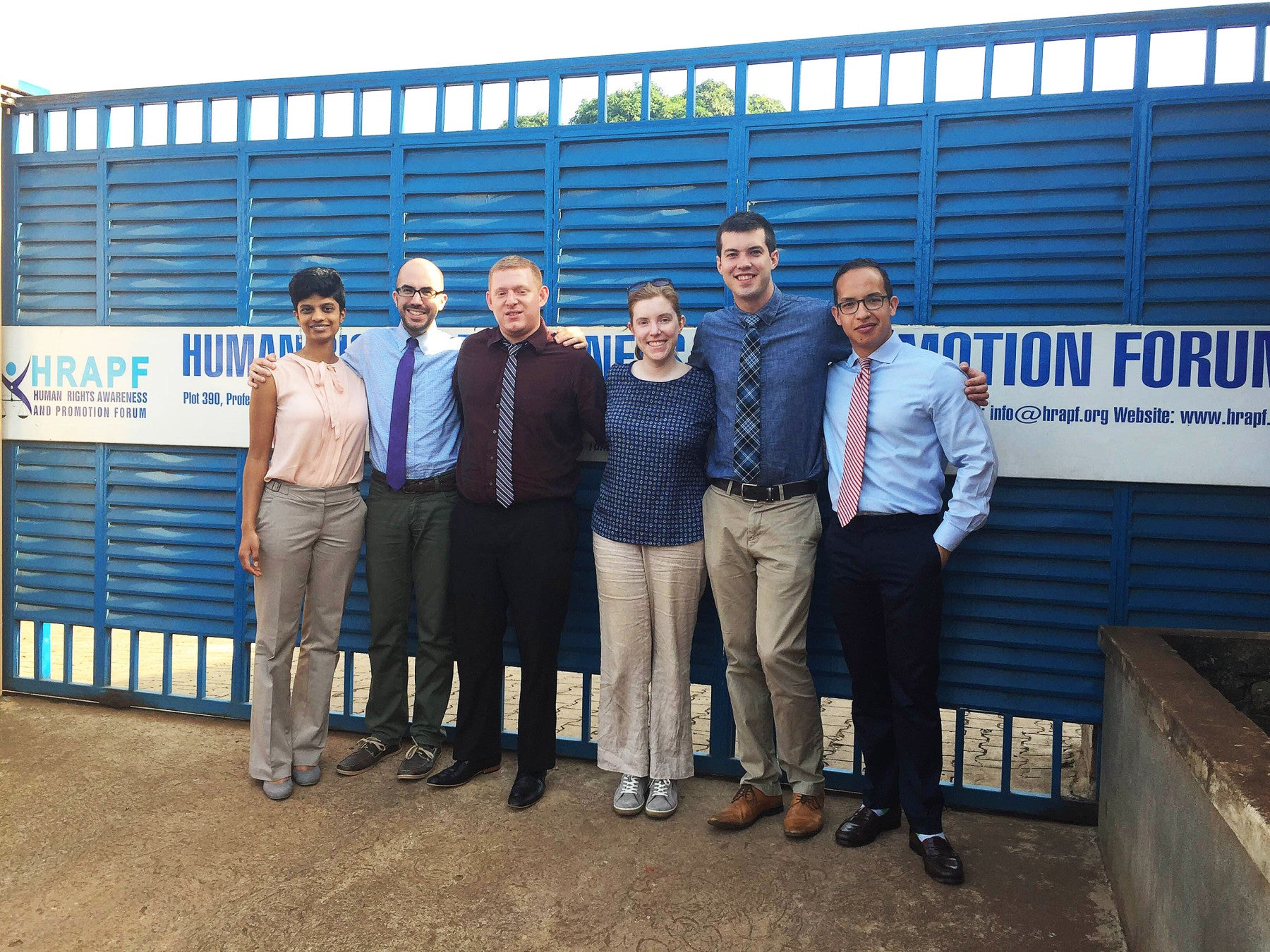
Five students traveled to Uganda over spring break to work on pending litigation that could advance human rights protections for lesbian, gay, bisexual, transgender, and intersex (LGBTI) Ugandans. LGBTI rights have been a contentious issue in Uganda since 2007, when LGBTI Ugandans started advocating publicly for their rights. This sparked backlash from pastors and politicians with close ties to the United States, and in 2009 a Member of Parliament proposed the death penalty for “serial offenders” of homosexuality. The death penalty was later reduced to life imprisonment, and a number of court battles over LGBTI rights ensued.
The students from Harvard worked under the supervision of lawyers at the Human Rights Awareness and Promotion Forum (HRAPF), a nongovernmental organization in Kampala that provides direct services, conducts research and advocacy, and coordinates strategic litigation. During the week-long trip, the team conducted legal research, met with lawyers and activists, and wrote an internal memo. Organized by Lambda at Harvard Law and Harvard Law Student Advocates for Human Rights, the trip included Andres Caicedo ’16, Brandon Storm ’18, Brian Klosterboer ’16, Charlie Fletcher ’18, and Mitha Nandagopalan ’18.
With the guidance of HRAPF attorneys, the team researched Ugandan and international law while exploring human rights strategies for advancing the rule of law. Since 2008, HRAPF has been a leader in promoting human rights for marginalized groups, including LGBTI individuals, sex workers, and women and children living with HIV.
In August 2014, HRAPF was lead counsel in a case that overturned Uganda’s Anti-Homosexuality Act in the Constitutional Court. Brian Klosterboer ’16 was part of that team as he interned at HRAPF during his 1L summer. Adrian Jjuuko, HRAPF’s Executive Director, has also visited Harvard Law School twice as a speaker in the last three years.
HRAPF and Harvard strengthened these connections as students spent five days working with HRAPF attorneys and paralegals. The students also met with LGBTI clients and visited journalists and activists from the Kuchu Times Media Group (KTMG).
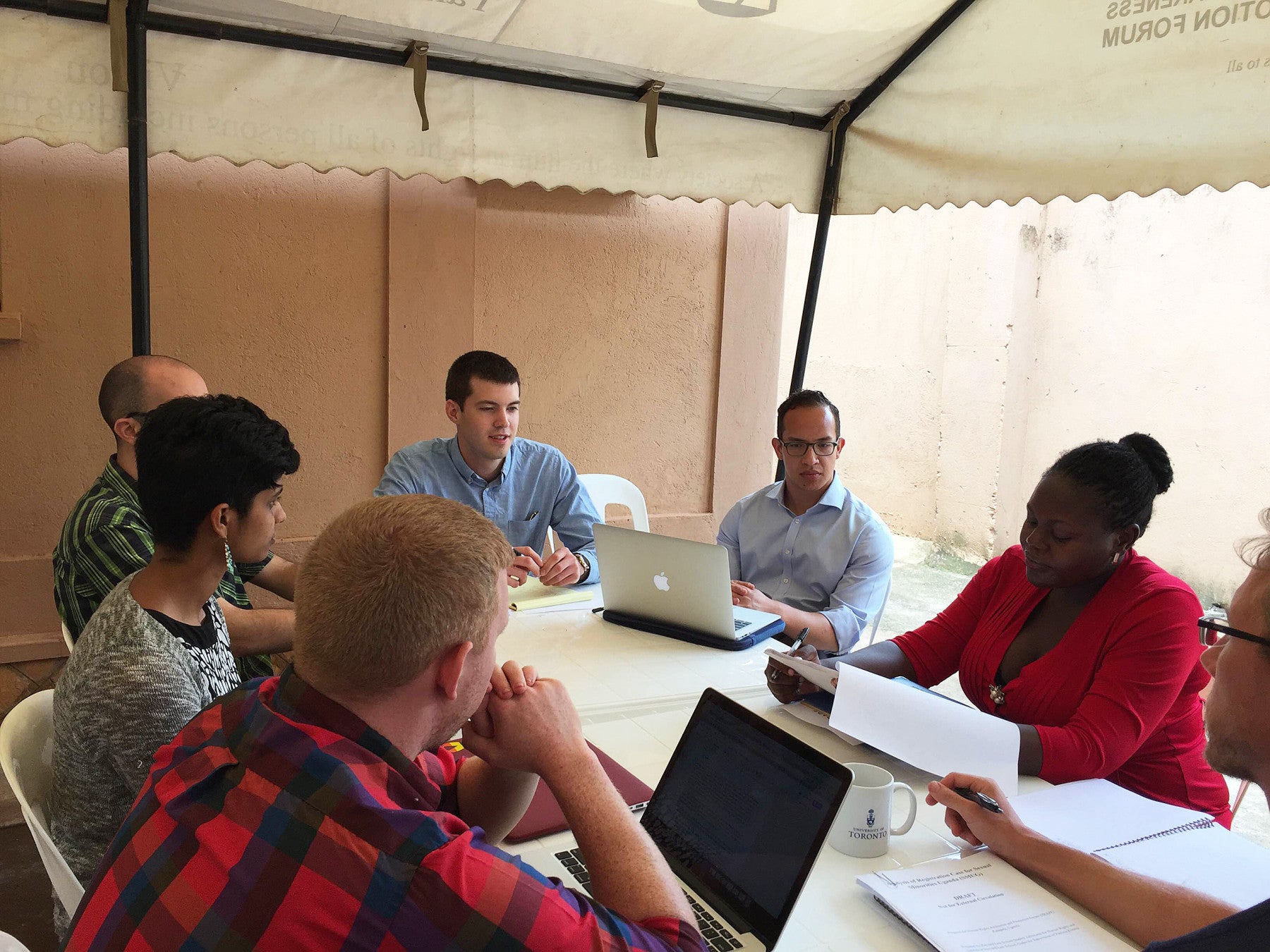
KTMG is an LGBTI-led media group that provides a platform for LGBTI Africans to share their stories in their own voices. It was founded in December 2014 by Kasha Jacqueline Nabagesera, who had previously been a plaintiff in a lawsuit against a Ugandan tabloid. That tabloid published the names, pictures, and addresses of dozens of LGBTI Ugandans and called for them to be killed. HRAPF represented Nabagesera in the case and set an important precedent that LGBTI individuals have the same right to privacy as everyone else.
Despite this ruling, Nabagesera and others continued to be outed and attacked in Ugandan tabloids. They decided to create a magazine and news website to tell their own narratives. Last Wednesday, students met with the staff of KTMG and saw a sneak peek of the second issue of Bombastic magazine, which is set to be released next week.
While in Uganda, the team also saw a cultural dance show, went white water rafting on the Nile River, and took a boat cruise on Lake Victoria. The team was welcomed by three LLMs–Godiva Akullo ’15, Susan Mirembe ’15, and David Lewis ’15–who graduated from Harvard last year and are now lecturers of law at two leading universities in Kampala.
The memo that the team produced is confidential, but students hope that their research and analysis will contribute to HRAPF’s mission of advancing human rights for all Ugandans.
The trip was sponsored by the Office of Clinical and Pro Bono Programs, and Anna Crowe, a fellow in the International Human Rights Clinic, joined students on the trip.
***
Providing a variety of legal services in greater Boston
Lydia Mwalimu Adude LL.M. ’16
They say that the market is flooded with lawyers, but this does not really mean that the field of public interest is flooded. Public interest law is still in dire need of lawyers. Accordingly, my main driving force in taking part in the spring pro bono projects was because it presented an opportunity for me to give back to society with my already acquired legal skills, and equally to get more acquainted with the U.S. legal system.
I worked with Greater Boston Legal Services (GBLS) and the Legal Advocacy & Resource Center (LARC). I worked with LARC screening clients for intake in a number of areas, including bankruptcy law. I also worked on a lawyer for the day project by conducting online research and telephone inquiries on the lawyer for the day programs and other pro se resources in probate and family courts in Massachusetts. I assisted the GBLS Criminal Offender Record Information (CORI) Sealing Unit in its legal representation of clients at the Roxbury Trial Court, and visited the Massachusetts State House to help create awareness on a Senate Bill, SB 2176, passed by the Massachusetts Senate on March 10, 2016 to increase the felony larceny threshold from the current $250 to $1500. My presence at GBLS also presented an opportunity to attend the Boston City Housing public hearing on the proposed Just Cause Eviction (JCE) ordinance. JCE seeks to incorporate safeguards for renters facing eviction and small home owners facing foreclosure of their homes in the Boston housing economy.

I was hesitant at first because of my foreign legal education but I am glad that I was able to fit in nicely so fast through the guidance of my supervisors. What surprised me most was the diverse pool of people seeking legal aid in order to access justice, and the fact that the limitations on the legal services field meant that most of them had to be turned away even though the organization tried its best to make external referrals. The spring break pro bono project exposed me to the intricacies of the legal services sector in the U.S., and the diverse nature of the U.S. populace. All in all it gives me great pleasure to know that my pro bono legal service made justice accessible to someone in need of legal aid.
***
Navigating the border: A dispatch from ProBAR in Texas
Edith Sangueza ’18
Seen from the outside, the Port Isabel Detention Center (PIDC) is a cheerful coral color, with an asymmetrical glass front. Palm trees and bougainvillea flowers line the well-kept grounds. A short distance away, spring breakers enjoy the beaches and beer on South Padre Island.
On the inside, though, the detention center is chilly, sterile, and unmistakably prison-like. To the more than one thousand people detained inside, it might as well be prison. Detainees, often fleeing extreme violence in their home countries in Central America, eastern Africa, and South Asia, have no right to counsel in navigating the U.S.’s byzantine immigration laws. ProBAR, a legal aid organization based in nearby Harlingen, steps in to fill the gaps, helping detainees prepare for their cases. Because of strictures from its funding model, ProBAR chiefly provides legal education and helps people so they are better prepared to represent themselves pro se.
We arrived at ProBAR on Monday and received a brief orientation from Edgar Gaucín, the office manager, whose own life has spanned the border from Matamoros, Mexico, to Brownsville, TX. Once oriented, we headed out to PIDC where we split up and were able to interview several people seeking asylum. We helped them prepare English-language versions of their I-589 forms, the form potential asylees must prepare in order to apply for either asylum or for withholding of removal. We talked to people with a wide range of ages, experiences, and motivations for leaving their home countries, including some whose past criminal records could be serious obstacles to their asylum applications.
The experience was incredibly valuable as a way to see what the asylum process is like in practice, especially within the expedited removal context. It was also re-centering and motivating as a way to put my legal education into practice.
***
A memorable experience with Volunteer Lawyers Project
Lan Jiangshou LL.M. ’16
I am very grateful to have spent my spring break at Volunteer Lawyers Project (VLP). I never imagined how this pro bono experience could help me in a way that is so tangible and memorable. I crafted my skills by attending the Boston Housing Court, the Boston Municipal Court, the Quincy Small Claims Court and the Suffolk Family Court; by participating in the trainings and luncheons organized by the VLP; and by interacting directly with the clients at different clinics on bankruptcy law, consumer law, guardianship law, family law and housing law. Moreover, as someone with a legal background from China, this five-day experience gave me the precious opportunity to see how the pro bono system in the U.S. is funded and operated, and the breadth and impact of the system in the communities.
My eyes were opened to substantive law areas that I have not encountered–and would not encounter–in the big law firms. During my spring break, I was introduced to a unique group of people who were energetic and incentivized, cautiously balancing the two requirements of their job: keeping a sympathetic and empathetic eye on the clients and avoiding a quick emotional burn-out. I was able to glance at a previously neglected world, which is out there, vibrant and real. I would not be exaggerating when saying that pro bono work can nourish one’s soul. By handling every individual case, we drag one person or a household out of desperation. We redefine ourselves in paving the way to justice, and in aggregation naturally assume the role of fixing the systematic problems inherent in our society that I have eye-witnessed for the past five days and could not, from then on, just stand by.